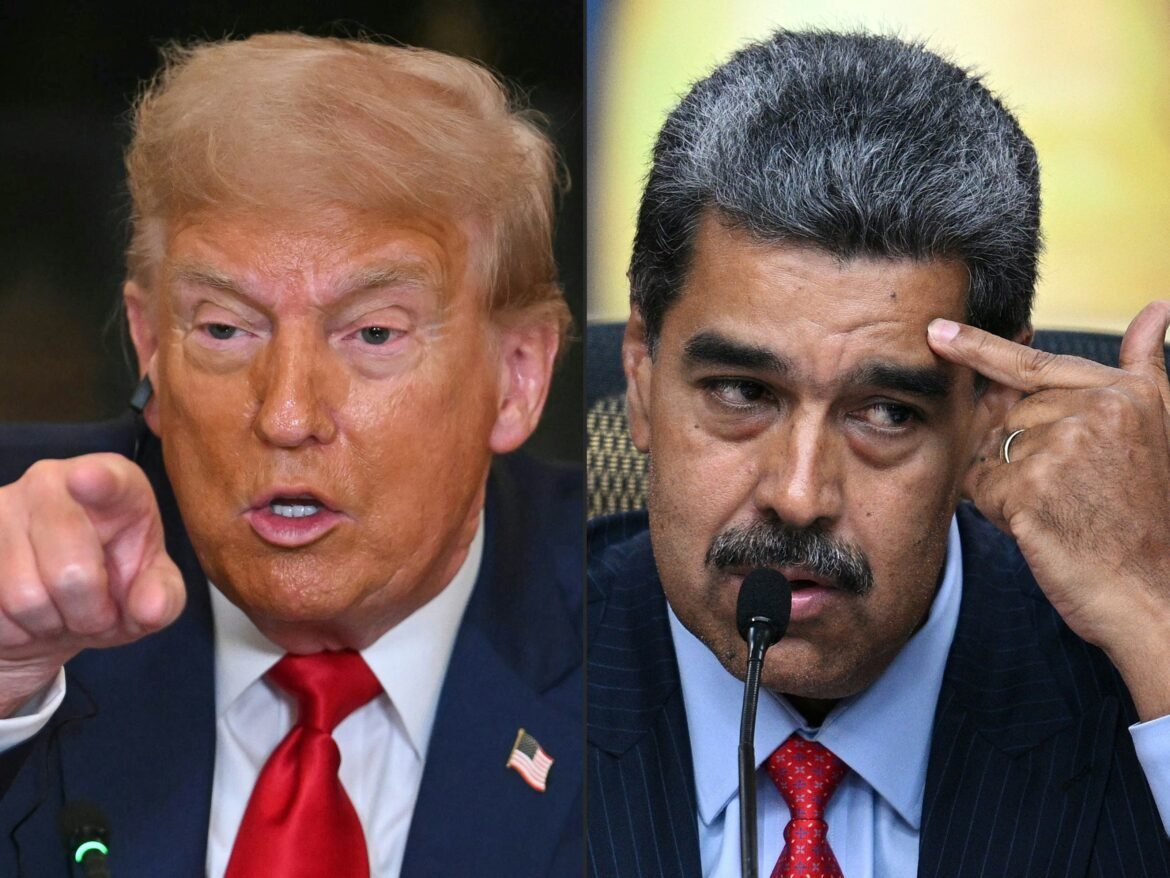The United States is about to launch a new phase of operations in Venezuela, as US President Donald Trump intensifies pressure on Nicolás Maduro’s government. The information was released by the Reuters news agency. It is not yet clear the exact timing or scope of the new operations, nor whether Trump has already made any final decision on the implementation of this new phase, but US officials reportedly told the agency that the options being evaluated by the US government include an attempt to overthrow Maduro. When contacted by the agency, the Pentagon referred questions to the White House and the CIA (US central intelligence agency) refused to comment. The Venezuelan Ministry of Communications did not respond to a request for comment. “President Trump is prepared to use every resource of American power to stop drugs from flooding our country and to bring those responsible to justice,” a US official told Reuters on condition of anonymity. See the videos trending on g1: See the videos trending on g1 The Trump administration has been evaluating options related to Venezuela to combat what it describes as Maduro’s role in supplying illegal drugs that have killed Americans. The Venezuelan president, in turn, denies any connection with drug trafficking. INFOGRAPHIC: how the US surrounded Venezuela in an operation that threatens the Maduro government Maduro, in power since 2013, claims that Trump seeks to remove him and that Venezuelan citizens and the military will resist any attempt in that direction. He also characterizes US actions as an attempt to take control of Venezuela’s oil. The presence of US military personnel in the Caribbean has been increasing for months, and Trump has already authorized covert CIA operations in Venezuela. The US Federal Aviation Administration (FAA) on Friday warned major airlines about a “potentially dangerous situation” when flying over the country, and urged caution. The United States plans to designate the Cartel de los Soles as a foreign terrorist organization next Monday due to its alleged role in importing illegal drugs into the country, officials said. The Trump administration has accused Maduro of leading the Cartel de los Soles, which he denies. Trump seeks Maduro’s arrest In August, Washington doubled the reward for information leading to Maduro’s arrest to US$50 million (R$269.5 million). But U.S. Defense Secretary Pete Hegseth said last week that the terrorist designation “brings a number of new options for the United States.” Trump said the imminent designation would allow the United States to attack Maduro’s assets and infrastructure in Venezuela, but also indicated he was willing to pursue negotiations in hopes of a diplomatic solution. Maduro said earlier this week that differences between countries must be resolved through diplomacy and that he is willing to hold face-to-face talks with anyone interested. According to Reuters, two US officials confirmed that talks were taking place between Caracas and Washington, but it was not clear whether these conversations could affect the timing or scale of possible US operations. The U.S. Navy’s largest aircraft carrier, the Gerald R. Ford, arrived in the Caribbean on Nov. 16 with its strike group, joining at least seven other warships, a nuclear submarine and F-35 aircraft. To date, American forces in the region have focused on counter-drug trafficking operations, although the firepower gathered is far greater than that needed for these operations. Since September, US troops have carried out at least 21 attacks against suspected drug trafficking boats, killing at least 83 people, mainly in the Caribbean, although vessels in the Pacific Ocean have also been targeted. Human rights organizations have condemned the attacks as illegal extrajudicial killings of civilians, and some U.S. allies have expressed growing concern that Washington may be violating international law. The Trump administration has said for months that the attacks on boats are aimed at curbing drug trafficking, which it says kills millions of Americans. However, most overdose deaths in the United States are caused by fentanyl, which is largely produced in Mexico. According to international organizations, some of the cocaine is transported by drug traffickers through the Caribbean, but much of the supply to North America arrives via the Pacific. The US military is much larger than Venezuela’s, which is weakened by a lack of training, low pay and deteriorating equipment. This reality has led Maduro’s government to consider alternative strategies in the event of a US invasion, including possibly a guerrilla-style response, which the government has termed “prolonged resistance” and mentioned in broadcasts on state television. This approach would involve small military units in more than 280 locations carrying out acts of sabotage and other guerrilla tactics, Reuters reported, citing sources and old planning documents. *With information from Reuters news agency Image shows US President Donald Trump (L), in Washington, DC, on July 9, 2025, and Venezuelan President Nicolás Maduro (R), in Caracas, on July 31, 2024. AFP/Jim Watson
Source link
US plans new operations in Venezuela and may try to overthrow Maduro, agency says
49

